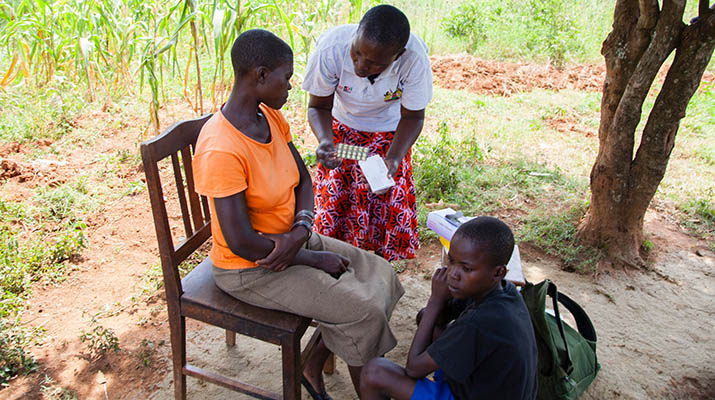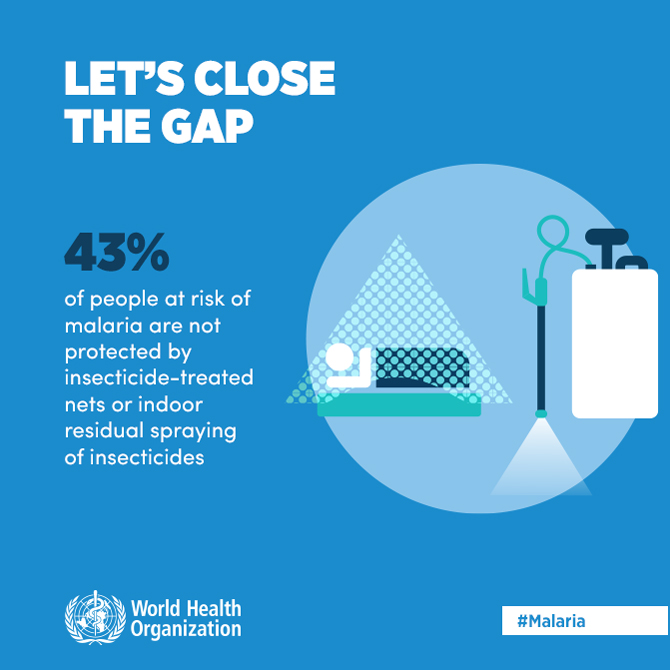Malaria Prevention Works: MSH Observes World Malaria Day Around the World
Malaria Prevention Works: MSH Observes World Malaria Day Around the World

April 25 is World Malaria Day, and this year the World Health Organization (WHO) is shining a spotlight on prevention, the cornerstone of malaria control efforts globally.
While many countries with ongoing malaria transmission have reduced the burden of this disease significantly, the work is far from over. According to the WHO, in 2015 alone, there were an estimated 212 million new cases of malaria. That same year, malaria claimed the lives of almost half a million people worldwide, mainly young African children.
 Why does malaria continue to take such a heavy toll? Simply put, many people in endemic countries lack access to the tools that prevent, diagnose, and treat the disease.
Why does malaria continue to take such a heavy toll? Simply put, many people in endemic countries lack access to the tools that prevent, diagnose, and treat the disease.
MSH has more than three decades of experience fighting malaria in more than 40 countries. In partnership with Roll Back Malaria (RBM), National Malaria Control Programs (NMCPs), donors, and international and local stakeholders, MSH helps countries scale-up proven interventions to prevent and treat malaria, while building capacity in health systems and developing innovative tools and technologies that are helping to combat the disease.
To mark this year’s World Malaria Day, MSH is supporting activities across a number of African countries.
In Sierra Leone, MSH’s Leadership Management and Governance program is conducting a series of mass media communications focused on malaria control topics, including a televised competition with six secondary school students in Freetown. Promotional materials, including flyers, tee-shirt, and caps with key control messages will be distributed.
In Burundi, the National Malaria Control Program will commemorate the day in the interior of the country, with a speech from the Minister of Health, distribution of mosquito nets, traditional music and dance, and the dissemination of key malaria messages through mass media.
In Cote d’Ivoire, MSH is supporting the Malaria Scientific Forum at the University of Felix Houphouet Boigny and, on World Malaria Day, the country’s Minister of Health and the National Malaria Control Program will conduct a parade with performances, speeches, and other communication-related activities to raise awareness about malaria. There will also be a two-day travelling caravan stopping by in Abobo, Yopougon, and Adjame, that will provide entertainment with key malaria messages and distributing ITNs to pregnant women and children under the age of one.
In the Democratic Republic of the Congo, the Integrated Health Program Plus, funded by USAID and led by MSH, is contributing to World Malaria Day by participating in scientific fora organized by the National Malaria Control Program. MSH is also helping to organize mini-campaigns to fight malaria in two districts with poor performance for intermittent preventive treatment in pregnant women (IPTp) and care-seeking behavior. Those campaigns include: advocacy with religious, political, and administrative leaders, and traditional practitioners; dissemination of key messages on prevention and case management; education sessions at the community level; community outreach to offer treatment services for uncomplicated malaria.
In Malawi, the Organized Network of Services for Everyone’s Health project (ONSE), funded by USAID and led by MSH, will be providing direct technical support to the National Malaria Control Program for World Malaria Day activities.